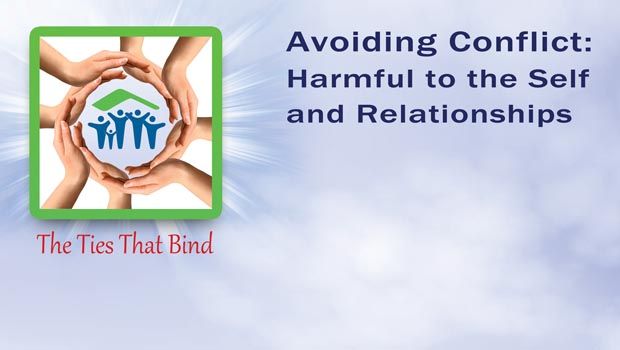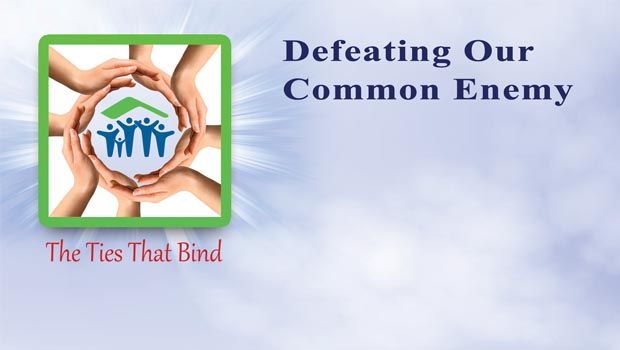As he walked up to the front door, he took a deep breath. His heart was racing as if it was going to beat out of his chest. This was the first time he was going to see his brother after being humiliated by him at a family gathering the previous week. He knew he had to confront him about it and make it clear that his words and behavior were unacceptable and really hurtful. It made sense in his head: walk to the front door, ring the doorbell, ask to talk, and then speak. But, it wasn’t that simple. Even walking to the house was so difficult. He hated talking about issues and had always told himself to just get over it so that he didn’t have to go through this. This time, though, it wasn’t easy to get over the traumatic incident, so he knew he had to address it. He just didn’t know if he had the courage to go through with it. He was about to raise his hand to ring the doorbell, but the sound of his beating heart was so loud that he turned back around and walked away…
The inner strength it takes to address issues and to face conflict head on is a valuable and rare commodity.
The inner strength it takes to address issues and to face conflict head on is a valuable and rare commodity. As humans, we have a natural inclination to avoid negative encounters. This includes difficult conversations, uncomfortable situations, and anxiety-provoking relationships. Instead of facing our fears, it is easier to avoid them, although this is often not the wisest choice. The natural uncomfortable feeling of fast breathing, an elevated heart rate, increased sweating, etc. are sensations we try to stay clear of in our lives.
In certain situations, it makes sense to avoid a confrontation because we may never see that person again, such as while driving on the road when someone cuts in front of the car or blocks the fast lane. However, when we avoid conflict in our personal lives, our relationships suffer and so do we. Without being completely honest and addressing things when situations bother us or hurt us, we are not being true to ourselves.
Why Do We Avoid Conflict?
It is essential to understand why we avoid conflict in such valuable relationships as those with our parents, siblings, spouses, children, and friends. When these people are so important to us, what makes us avoid being honest and expressing how we truly feel to them? Content published by Vancouver Island University sheds some light on the matter:
“For some of us, conflict may:
have largely involved displays of anger, with yelling and insults – an experience you want to avoid,
appear to be an inevitable part of the human condition; that conflict is never productively resolved, or
involve pursuing what we want as vigorously as possible, as that is the only way to get what you need.
The following fears or responses to conflict are common:
What if talking about it makes it worse, rather than better?
What if he doesn’t listen to me?
What if he/she yells at me?
Why stir up trouble? It will probably resolve itself on its own.”
Although avoiding conflict may seem desirable, it is actually harmful to the self and relationships. By avoiding conflict, the issue is not resolved and this often leads to an increase of anger, frustration, resentment, sadness, etc. When conflict is dealt with, discomfort is inevitable but temporary. Once the issue is resolved, the long-term benefits ensue. It leads to more open communication, honesty, and a sense of security in the relationship.
CBT
Cognitive behavioral therapy has proven to be an effective form of talk therapy. CBT is a form of counseling that digs deep to help us uncover inaccurate or negative thinking, dysfunctional emotions, or maladaptive behaviors. With regard to avoiding conflict, a cognitive behavioral therapist helps the individual figure out the thoughts related to the avoidance: “What thoughts develop when you think of facing the conflict?” Emotions will also be addressed: “What do you feel when you think about addressing the conflict with the person?” “What are you feeling now as you talk about it?” The behaviors will also be discussed: “What do you do when a conflict arises?” “What can you do to more effectively deal with the conflict?” The therapist will help the client explore whether the avoidant behavior is related to other issues, past or present. Oftentimes a fear of conflict arises from negative past experiences. The fear or uncertainty is related to the future and what might result from dealing with a conflict (as listed above), so conversation about what is going to happen and what could happen takes place.
Resources
If you find yourself avoiding conflict at all costs, even to the detriment of your relationships and your own wellbeing, it may be time to reach out to a therapist to help you unearth what is prompting this avoidant and counter-productive behavior. A helpful website to locate a therapist is www.therapistlocator.net. Two informative books about the avoidance of conflict are “The Coward’s Guide to Conflict: Empowering Solutions for Those Who Would Rather Run than Fight” by Tim Ursiny, PhD and “The Power of Positive Confrontation: The Skills You Need to Know to Handle Conflicts at Work, at Home, and in Life” by Barbara Pachter. With guidance and growing self-awareness, we can all enjoy more honest and fulfilling relationships, insha’Allah.






